Whether you’re interested in selling Class A, B or C motorhome, determining your motorhome trade-in value involves some serious homework. It may be a tough decision, or it may be that you’re looking to upgrade. Either way, it begins with finding your RV’s worth.
To help you get an idea of what your motorhome trade-in value is or what your RV is worth, we’ll show you how to figure it out for yourself so you have a good idea of what to expect when you walk into the RV dealership. If you plan on selling your motorhome on your own, our tips will help you determine a price that could be competitive in your particular area.
How Do I Know My Motorhome Trade-In Value?
There’s a specific motorhome trade-in value that’s determined by various value guides, but, that’s not the whole story. These guides don’t include the intangibles, so it’s up to a trained RV inspector or used RV sales specialist to use these guide values while factoring in the wear and tear intangibles.
Many of these non-motorhome trade-in value factors are based on several factors that have little to do with your RV and more to do with similar models in your area.
First things first. Start with NADA, which is now known as the J.D. Power Value Guide. Here’s the link: https://www.jdpower.com/rvs.
Notice the “RVs” at the end? Don’t forget that part, or you’ll end up browsing through cars, SUVs, and pickup trucks, wondering what’s wrong with the link.
Once you enter your information and J.D. Power presents you with a monetary value, you’re just getting started. It’s best to consider the price point as a baseline before you proceed.
Can You Get More for Trading in Your Motorhome or Selling it Privately?
This is part of the reason why you should wait and be patient. Dealers like trades, mostly because they’ll take your old motorhome, repair the essentials, give it a good cleaning, and sell it at a higher price point.
Since the dealer can sell it at a higher price point, why can’t you? Right? According to RV Loan HQ, dealers will typically reduce the value of your motorhome by 10% to 20%, not including deducted monetary amounts for repairs, and offer you that calculated number.
You have to consider sales tax because when you sell your RV yourself, according to the IRS and your state, you’re making income on that sale. There’s no escape from it, so calculate it. In most states, you pay a sales tax on the total price of the new RV, minus the value of your trade-in.
Without a trade-in (assuming you show up with wads of shiny, hundred-dollar bills from your private sale), you pay the sales tax for the RV dealer, just like if you were to go to your local convenience store and buy a candy bar, you pay the sales tax on that. If the sales tax on your new RV is 5% and the new motorhome is $95,000, you pay an additional $4,750 as part of the closing costs.
Here’s the difference: at an RV dealership, your motorhome trade-in sales tax becomes a tax issue for the RV dealership. So it becomes their accountant or CPA’s headache. But, if you sell your motorhome yourself, during tax season, you may have to declare that sale as “earned income.”
Therefore, you may be able to get more money by selling your RV by yourself. Yet using your motorhome as a trade-in or selling it to an RV dealership can save you money and a big headache later on during tax season because it’s their problem, not yours.
Is There a Kelley Blue Book for Motorhomes?

There “kinda sorta” is a Kelly Blue Book for motorhomes and other RVs. The Kelley Blue Book Value has been the go-to source for information on vehicle values for 90 years. That’s nearly a century-long reputation. Since motorhomes are technically vehicles, with motors, cabs, seatbelts, wheels, etc, you would think you could find a valuation in Kelley.
What is Kelley Blue Book for RVs?
The “kinda sorta” comment is true in that there is a valuation guide for RVs and motorhomes. It’s the aforementioned NADA ( National Automobile Dealer’s Association). However, it’s now known as the J.D. Power Value Guide.
What are NADA Guides for RVs?
NADA Guides are simply a series of resources for determining the value of your RV. Of course, there is more to it than that, including local RV prices (an invaluable resource when determining the selling price of your own) and local market trends.
Can You Use NADA Guides for Motorhomes?
When you navigate to J.D. Power, you’ll notice a series of descending RV types around the middle to the upper portion of the page, depending on your browser. This list of types includes motorhomes, along with travel trailers, 5th wheels, camping trailers, and truck trailers.
- Select Motorhomes
- Select Manufacturer from one of the two drop-down menus
- Select the Year
- Select Motorhomes again
- Skim down the resulting list and locate your motorhome
- Select it
- Enter your Zip Code
- Select Base Pricing or Add Options to get a more specific value
Why is it Important to Know Your Motorhome’s Value?
The number one reason to know your motorhome’s value is that you want to have an idea of what is a good deal. Even if you’re not necessarily cheated out of the value, you want to get the most out of it, not the least. Walking into a sale or a trade without knowing the worth of your product is a bad way to do business, whether it’s a motorhome or a slinky.
How Do I Find the Market Value of My Motorhome?

As we mentioned above, the J.D. Power (NADA) valuation shouldn’t be the end all be all of your market value determination. There are several other factors worth breaking down as well. That’s why J.D. Power asks for your zip code.
1. Check J.D. Power RV Value Guide
This is where you establish your baseline—your foundation, if you will. Everything else is constructed on top of the NADA/J.D. Power valuation is determined when you enter all of the pertinent information.
2. Analyze Online Listings in Your Area
Your local area is arguably just as important as the NADA valuation. Not only that, if you live near a dealership that will stand in as the middleman for a private transaction, you can make a sale for a higher price and still take advantage of the reduced sales taxes.
RV consignment dealers are these middlemen that can do the hard work for you. They have the resources to advertise, complete the paperwork, and sell your motorhome for you. You will want to do your research on selling your motorhome or RV through a consignment RV dealer because there are some logistics you need to know.
Learn more about selling your motorhome on consignment in our RVBlogger article, How Does RV Consignment Really Work?
3. Consider the Age and Condition of Your RV
Age and condition will both make a difference. That’s why it’s important to keep all of your maintenance records. Thoroughly clean your motorhome and make any necessary repairs. Take some great photos that show all the angles and features you would want to see if you were buying a motorhome. After all, you want to make your motorhome look as enticing as possible to possible buyers.
What are the Most Common Problems to Look for When Evaluating Motorhome Worth?
One of the most common problems is not one of the most obvious. A great deal of devaluation takes place, starting the moment you drive the motorhome off the lot and compiling each year. After that, you’re focusing on the more tangible issues.
- Hidden water damage issues (more so when evaluating much older RVs)
- Delamination
- AC filters
- Rust
- Body damage
- Older tires
- General wear and tear
- Rubber roof seals
- Smells are picked up easily in older RVs (Pet and smoke odors)
Is There an RV Appraisal Service You Could Use?
It’s always a good idea to hire an RV inspector to give you a good idea of the overall value and areas that need repairs. This is especially true if you want to ensure that either your calculations are accurate for the motorhome you want to sell or you want the fair market value of the one you’re thinking of buying.
To find a certified RV inspector, go to the National RV Inspectors Association (NRVIA) website to find an inspector in your area. The best part is, they’ll come to you!
What 10 Factors Influence Your Motorhome’s Worth?

One of the best things you can do is try your best to minimize the factors that depreciate your motorhome, starting from the moment you crank up the engine for the first time.
1. Driving Off The Lot
It’s a sad truth that driving your shiny new motorhome off the dealer’s lot is one of the biggest factors in terms of depreciation. According to J.D. Power, you lose 20% the moment you drive away from the buyer’s lot for the first time.
2. Age
Depreciation, in terms of age, is a little different based on the Class of motorhome you own.
- A total of 30% in three years on a Class A Motorhome
- A total of 33% in three years on a Class B Motorhome
- A total of 38% in five years on a Class C Motorhome
For what it’s worth, Class C motorhomes depreciate the least of the three, which is why a 5-year rating is used for a comparable percentage. Class B vans come in second, with Class A RVs leading the way with the fastest depreciation.
3. Mileage
Unfortunately, mileage affects a motorhome just like any motorized vehicle, and highway versus city miles doesn’t factor into the equation. A Class C motorhome will have a higher devaluation at 150,000 miles than the same make, model, and year at 75,000 miles. However, more importance is placed on the year over the mileage.
4. Condition
Wear and tear is one of the more obvious ones, and it’s also the most avoidable. The better you take care of your motorhome, the less it’ll depreciate. Make necessary repairs, put all of your repair receipts in a file folder, and keep it as clean as possible.
5. Water Damage
Water damage is a big factor. The older an RV gets, the more susceptible your motorhome is to it. It’s a good idea to maintain your rubber roof, which is more prone to weather leaks than fiberglass or aluminum. Also, have your silicone caulk ready when you run through your RV maintenance checklist. If you see a weak point, add more sealant.
6. Accident History
This can make or break a bottom line, depending on how it’s handled and how effectual the eventual repairs were. Minor scrapes and scratches aren’t as big of a deal as your drawer bottoms falling out.
7. Upgrade
Upgrades can go either way. Potential buyers will either want a motorhome with the standard amenities your motorhome comes with or those that come as optional features from the factory.
Outside of that, you’ll get more money for a later-installed, powerhouse solar package with barely used, lithium-ion batteries or some other aftermarket upgrades that are highly sought after. Any customizations that you’ve added for yourself that aren’t as popular can make it harder to sell your motorhome to sell.
For example, if you installed a magnetic knife holder on the kitchen wall, buyers may not want that. The best way to determine what buyers are looking for is to see what other motorhomes like yours are featuring in your area and focus on those amenities that your motorhome has in it.
8. Layout And Craftsmanship
One of the reasons J.D. Power requires year, make, and model is because those years and brands are heavily evaluated, including their overall levels of craftsmanship. Layouts make a difference as well. Things like an entertainment package with surround sound and theater seating versus a basic dinette make a difference.
You save money with standard features over higher-end furniture pieces. It stands to reason that you start on a higher bracket, before depreciation calculations, with a less common, more expensive layout over a lower-priced floor plan.
9. Chassis
Motorhomes usually have 3 different chassis. Newer gas engine motorhomes use the Ford F-53 chassis. Diesel versions are built on either a Freightliner or Spartan Chassis. Some motorhome manufacturers that are either still building or are out of business built their motorhome chassis in-house.
Each brand of motorhome chassis has its pros and cons. As long as the chassis is in good shape, you shouldn’t have a problem selling your motorhome. Buyers that know the various chassis may prefer one over the other. You should focus your attention on making sure the chassis and the components attached to it are in good working order.
10. Engine
A lot more emphasis is placed on age and mileage (in that order) than the actual engine, but it does play a role. If your engine needs work, that’ll certainly be factored in when it comes time for an appraisal. Outside of that, mileage is the largest contributing factor the engine has to offer.
Is it Better to Sell Your Motorhome or Trade it In?

Judging by all of the information above, it’s better to get your own appraisal first, if you can. Start by getting the best price you can for a private sale. Then see what you can get for a trade-in. If the sale price is better, call around several consignment dealerships and see if they would be willing to conduct the private sale between yourself and the buyer. Here’s an example:
- A private buyer is willing to purchase for $30k
- The trade-in value at a local dealership is $20k
- The motorhome you want is $100k
- State sales tax is 7%
If you make the sale with a private buyer and put the $30k down on a $100k motorhome at the dealer, you will pay the full, 7% sales tax on the $100k, which comes to $7k for a total of $77k owed. However, if you trade in for $20k, you will pay sales tax on $80k, since the $20k is deducted, which comes to $85.6k.
So you’ll pay the sales tax on $70k, which comes to $74.9k, a little cheaper than a standard private sale. Private sale is the way to go, but it’s better to try and conduct it through the dealer, especially if the new motorhome you want is expensive.
6 FAQs About Knowing the Worth of Your Motorhome
1. How well do motor homes hold their value?
In a bubble, not very well. Fortunately, you have the power to minimize depreciation by taking good care of your motorhome.
2. Do motorhomes appreciate in value?
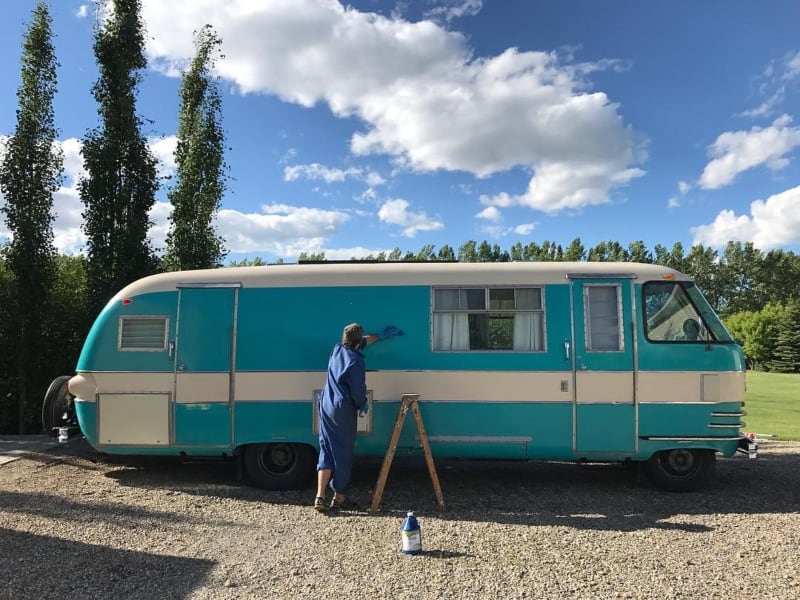
Motorhomes, like all RVs, don’t appreciate in value. They all depreciate, even if you rebuilt a 1962 Dodge Travco Class A Motorhome. Even if you restore it to its original factory specs, the RV World will applaud you for your work, and you may get some high bids for its “Classic ” Value, the actual value, the official RV guides won’t consider your Travco a high-value RV
Yes, we agree with you, vintage RV enthusiasts, on how much of a crime that is on one of the most significant motorhomes ever built.
3. How much do motorhomes depreciate over time?
Motorhome depreciation generally drops between 10-30% throughout its lifetime. Though a Class A drops about 20% off the lot, it slows way down, losing a grand total of 30% in three years. That’s 10% per year, while a Class C averages 7.6% depreciation per year.
4. Which Motorhomes Hold Their Value the Best?
There are so many different factors out there that we could write a gigantic book on them and only scratch the surface. One thing is certain, the motorhome that holds its value the best is the one you care for the best. Take care of it, and it will take care of you.
5. What is the most reliable Motorhome Brand?
Everybody has their preference, and every brand has something to offer. The most reliable brand is the one you know and take care of well.
6. Is it worth buying a used motorhome?
A lot of RV experts advise people to buy motorhomes that are no more or less than 5 years old. In the long run, you’ll probably save money based on depreciation and original owner repairs under warranty. Just be careful and always do your homework.
So, What’s Your RV Worth?
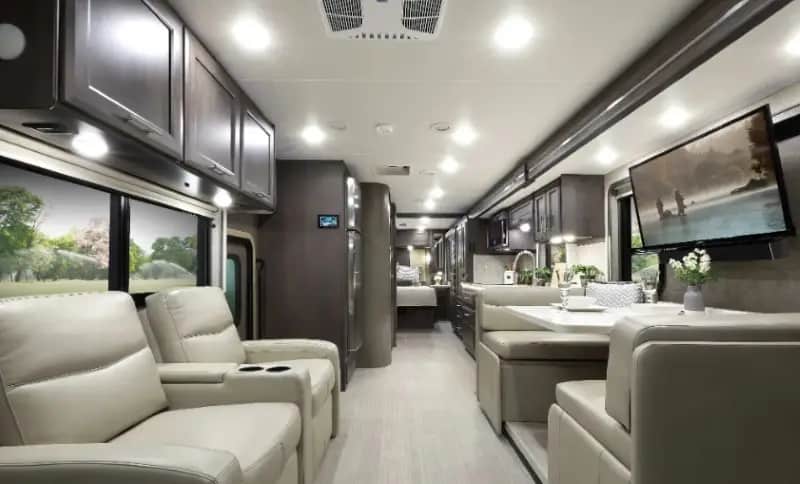
The question to end all questions is; What’s your RV worth? Now that you know where to look, you can find out through a series of steps. The most important thing is to take care of your motorhome. The most valuable RV is the one you maintain, through due diligence, appropriate repairs, quality add-ons, and cleaning.
Related Reading:
1. How To Find The Perfect Size RV
2. 12 Best Class A Motorhomes Under 35 Feet
3. 11 Best Class B RVs For Families Of 4
4. 9 Cheapest Class C RVs
About the Author:
Thomas Godwin is a full-time freelance writer with a BFA in Creative Writing, a U.S. Marine, and an avid outdoorsman.
When he’s not writing, he’s raising chickens and Appleyard ducks. Thomas also constructs teardrop campers (attempting to anyway) and kayaks the Blackwater River with his wife, two daughters, and his Dobermans.

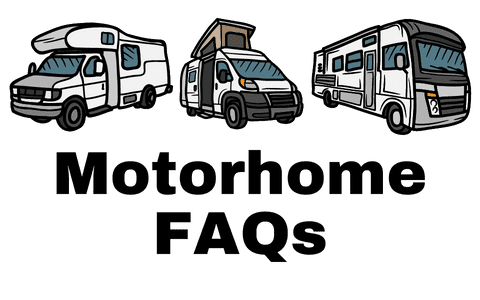
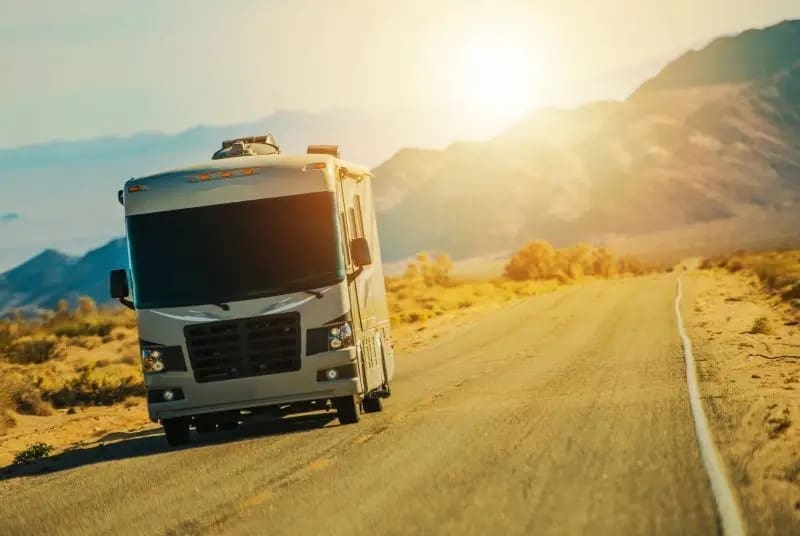
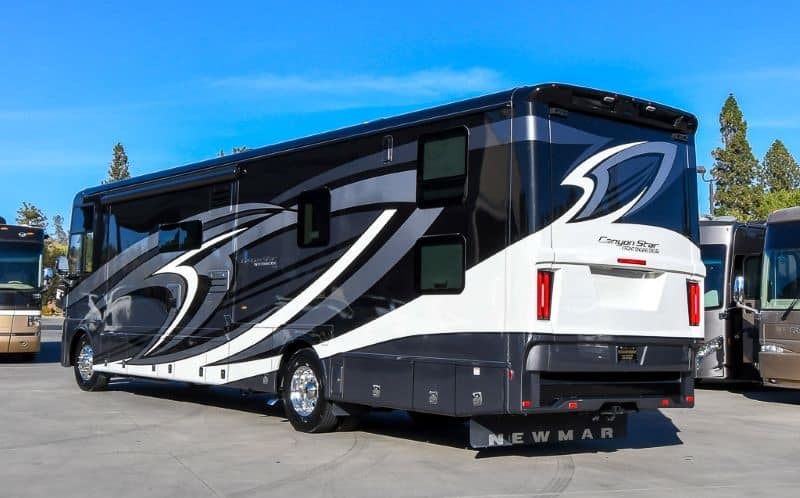
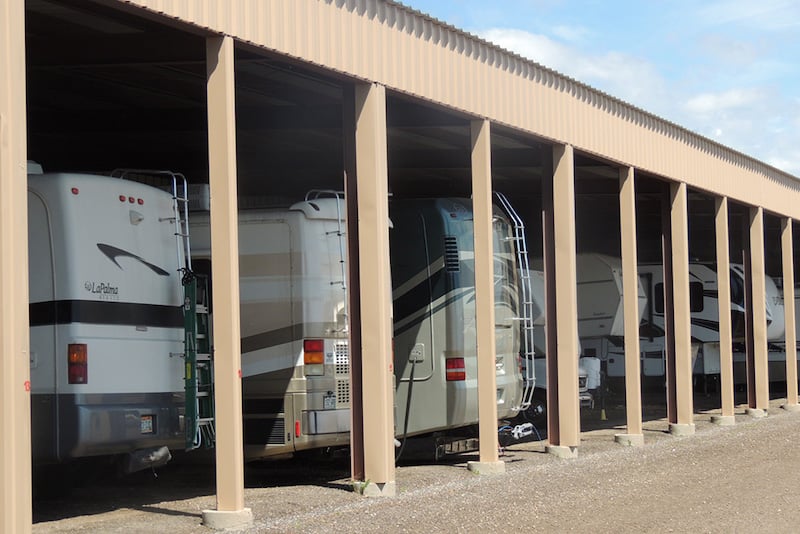
Im thankful for the blog article.Really thank you! Much obliged.